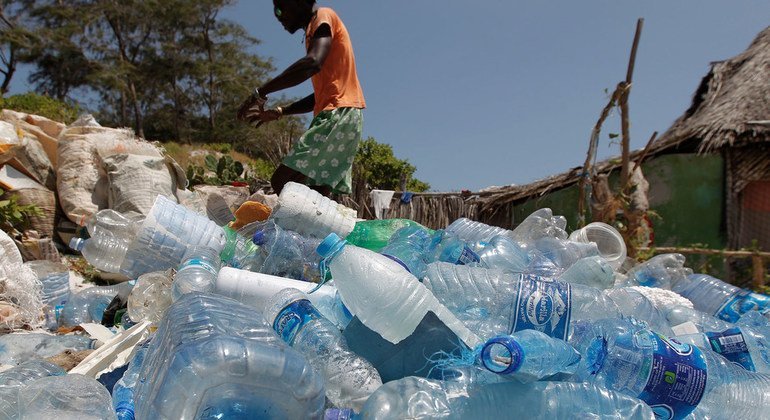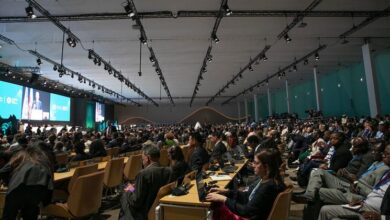Global plastics treaty: UN experts call for human rights to take center stage


The urgency is clear: humanity produces more than 460 million tons of plastic every year, of which half is designed for single use. “By 2050, there could be more plastic in the ocean than fish,” UN Secretary-General António Guterres has warned, with pollution now found “everywhere – around us and inside us.” us – from the sea to our blood, to our brains.”
Speaking before the final session of the International Negotiating Committee on the agreement, in Busan, South Korea, experts emphasized that countries and plastic manufacturing companies must take greater responsibility in addressing the issues. human rights impact worldwide.
Transparency and prevention
Experts emphasize that the legally binding instrument must include clear references to human rights and emphasize the importance of the principles of transparency, prevention and accountability.
“The current direction of negotiations…risks shifting responsibility from producing Countries to developing Countries that lack the capacity or resources to confront the global plastic scourge”, experts warn.
They emphasize that every stage of the plastic cycle creates pollution that threatens basic human rights – from production to disposal.
Transparency must underpin the entire process. “The public must have access to accurate and accessible information about chemicals of concern used in plastic polymers and products, the type and amount of pollutants emitted or released during each stage of the plastic life cycle, and the volume of plastic produced.” Human Rights Council– said the appointment expert.
The experts – who are not UN employees and do not receive a salary for their work – also highlighted the importance of prevention.
Prevention requires action on two fronts: controlling relevant chemicals in plastics and ensuring product design allows for safe recycling. These measures are especially important for developing countries that lack economic scale and are dependent on imports. Experts note that this approach would “enable the transition to a chemically safe circular economy.”
Producers must pay
To support these efforts, experts are calling for the creation of a mandatory global fund with manufacturer contributions.
“Accountability means plastic manufacturers must contribute to the global fund,” experts emphasize.
This would implement the polluter pays principle and assist developing countries, especially small island states, to implement effective waste management systems and clean up pollution. available, including marine plastic streams.
‘A just transition’
A human rights-based approach also requires access to remedies, especially for communities disproportionately affected by plastic pollution. Experts have previously called for a just transition to protect vulnerable communities, including waste pickers who collect about 60% of recycled plastic globally.
“A just transition that leaves no one behind is critical to addressing the situation of many individuals and groups whose income comes from plastic-related work,” experts emphasize.
Look ahead
Experts stated: “The international community must come together to end plastic pollution. Looking ahead, experts call for confronting “the negative externalities caused by fossil fuels and petrochemical industries” while ensuring the protection of vulnerable communities.
Their conclusion sets out a clear mandate: “A just and equitable transition to ending plastic pollution requires placing human rights at the core of the legally binding instrument being negotiated.” .




